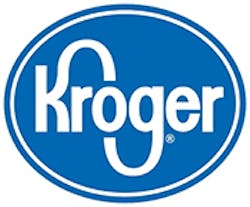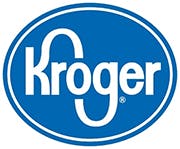Kroger names CHEP, IFCO as key to its waste goals
CHEP and IFCO, member companies of the Brambles Group, announced that their shared pallets and bulk containers and reusable plastic containers (RPCs) have been identified by Kroger as critical to reducing waste in its supply chain.
The nation’s second-largest retailer highlighted CHEP and IFCO in its 2016 Sustainability Report. By replacing more single-use packaging and platforms with reusables, Kroger aims to meet or exceed the US Environmental Protection Agency’s zero waste threshold of 90% diversion from landfill in its facilities by 2020.
Kroger’s sustainability report states, “Kroger partners with CHEP and IFCO, which both contribute to global sustainability through their ‘shared’ business models of pooled pallets, bulk containers, and reusable plastic containers (RPCs). These packaging solutions bring both operational efficiencies and environmental benefits. Compared with one-way packaging, reusable platforms and containers offer a lower carbon footprint, reduced water consumption, and less waste.”
In addition, Kroger notes its use of RPCs for fresh produce improved product quality and reduced waste by eliminating the use of more than 73,000 tons of waxed and corrugated boxes.
CHEP and IFCO supply chain solutions provide clear environmental benefits. For example, Kroger’s commitment to CHEP pallets avoided more than one million pounds of solid waste and eliminated 430 tons of carbon dioxide, the equivalent of growing more than 41,000 trees for 10 years. Separately, production of IFCO RPCs requires 65% less water and 34% less energy than one-way packaging. In addition, the use of IFCO RPCs results in a 31% reduction in greenhouse gas emissions and an 85% reduction in solid waste versus single-use cardboard boxes.
Kroger, CHEP, and IFCO are also members of the Consumer Goods Forum, whose members have committed to reducing food waste by half within retail and manufacturing operations by 2025, while also contributing to the United Nation’s 2030 food waste reduction goals.
For more details, see www.chep.com or www.ifco.com.

